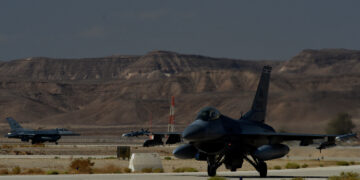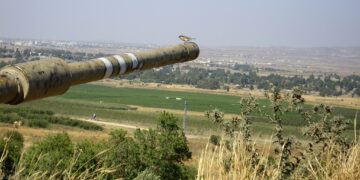
The most important diplomatic initiative in the Middle East isn’t the one taking place in Gaza, where the Israeli military shows no inclination to stop its military offensive against Hamas. It’s the discreet back-channel talks being led by Amos Hochstein, who is fast emerging as one of President Joe Biden’s most trusted troubleshooters. His task: negotiate a deescalation between Israel and Hezbollah along the Israel-Lebanon border area, prevent a wider conflict from erupting, and if all else holds, get all the parties around the table to strike a permanent border deal.
The last item on that list is a tall order, no matter how skilled the negotiator. And quite frankly, it’s probably not worth wasting too much time on right now because the odds of success are so low. Getting the Israelis and Hezbollah to stop shooting at each other, however, is doable, and it’s where Hochstein should invest all of his efforts.
Ever since Israel and Hezbollah signed a ceasefire agreement in the summer of 2006, the two sides have largely operated on an unwritten understanding: While we’re enemies, we agree to defer another conflict as far into the future as possible. It doesn’t take a genius to understand why: The last war between Israeli and Hezbollah forces, while relatively short, was extremely devastating to both Israel and Lebanon. About 1,200 Lebanese people were killed, southern Beirut was reduced to rubble, Israeli troop casualties were high compared to previous military engagements over the last decade, and Israeli Prime Minister Ehud Olmert’s government couldn’t achieve its initial, maximalist goals. While United Nations Security Council Resolution 1701 wasn’t implemented in full by either Israel or Hezbollah, the parties nevertheless stuck to its most critical component: a cessation of hostilities.
No longer. Israeli and Hezbollah forces have been exchanging fire for more than three months now. There have been casualties on both sides of the U.N.-demarcated Blue Line. Entire villages and towns in northern Israel and southern Lebanon have been emptied, and more than 150,000 people in the border areas have fled to safer ground. For Israeli Prime Minister Benjamin Netanyahu and his uber-right-wing coalition government, having tens of thousands of Israelis permanently displaced from their homes is simply not a sustainable situation and would be yet another political drag on a government that has lost the support of most of the country.
More on Middle East
Featuring Jennifer Kavanagh
August 28, 2025
Events on Middle East








